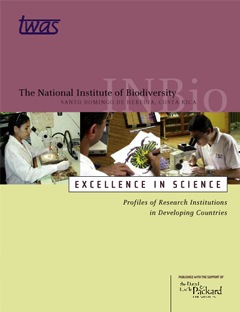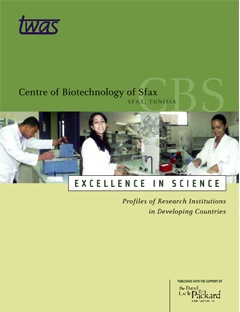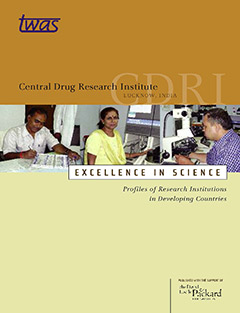Costa Rica is home to an estimated 500,000 species, including 40,000 species of beetles and 20,000 species of butterflies. The 'Instituto Nacional de Biodiversidad' (INBio), or National Institute of Biodiversity, is one of the key organizations "to promote a greater awareness of the value of biodiversity as a means of ensuring its conservation and improving the quality of life". Published with support of The David and Lucile Packard Foundation.
Excellence in Science
2008 - National Institute of Biodiversity, Costa Rica

2008 - Centre of Biotechnology of Sfax, Tunisia

While elsewhere in Africa the often-heated biotechnology debate continues to unfold, largely focused on genetically modified crops, researchers at the the Centre of Biotechnology of Sfax (CBS) are busy exploring biotechnology’s wider applications – in particular, seeking practical solutions to local and regional problems in agriculture, industry, health and the environment. Published with support of The David and Lucile Packard Foundation.
2007 - Central Drug Research Institute, India

The Central Drug Research Institute in Lucknow, India, is one of the 38 institutes and 80 field stations that make up India’s Council of Scientific and Industrial Research – an organization that employs some 20,000 staff, 15,000 of whom are scientists and technicians. The Institute, dedicated to the discovery and development of new drugs, plays a key role in translating basic research into commercial products.
– Published with support of The David and Lucile Packard Foundation.
